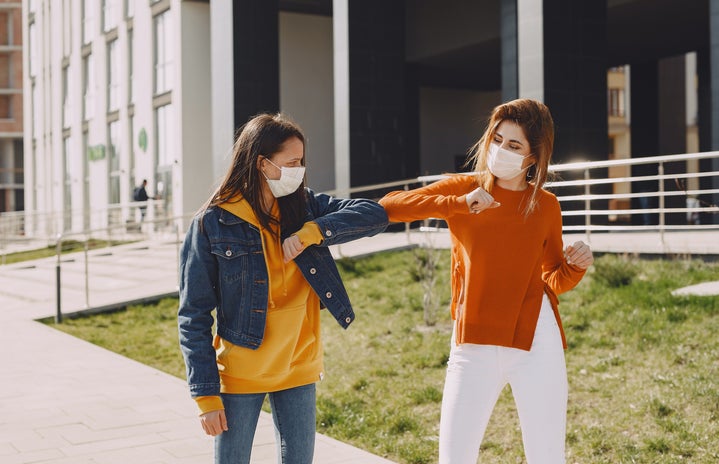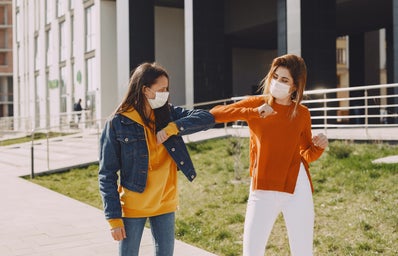The COVID-19 pandemic posed several impediments for the world. If we particularly talk about the economic sector, it has been affected in leaps and bounds. It has triggered the global economy and led to an increase in unemployment and inflation rates. Furthermore, it has had a plethora of implications for the youth. The consequences – a sheer reduction in job opportunities and the emergence of new market trends.
Recent data from the Periodic Labour Force Survey of 2022-23 reveals a strengthening labor market, with unemployment rates falling and labor force participation rates (LFPRs) for those aged 15 and above rising from 19.7% in 2018-19 to 41.5% in 2022-23 — a significant jump for a cohort that had long been on the margins of the labor market. These results were a testament to the robust post-pandemic recovery for India.
Research by Professor Rahul Menon elucidated that much of the new employment generated for women has been in self-employment. There has been a rise in the proportion of women working as unpaid family helpers, with the share of rural working women in this form of employment rising from 37.9% to 43.5% between 2018-19 and 2022-23. The share of women in regular wage work dropped from 22% to 16%. Increased employment comes at the cost of suitable working conditions, especially for women. Women’s employment had a considerable growth in India, particularly in the unorganized sector.
However, the pandemic has significantly impacted people’s lives, particularly worsening the employment situation for the young. This is concerning because the unemployment rate among the youth has been a persistent issue in the economy for the past few years. Even before the pandemic, unemployment stood at 25% in the 15-23 age group, compared to 6% overall.
While a single unemployed person has minimal influence on society. This implies that certain people in our society are free riders which means they contribute to society as per their potential. The state has provisions for such strata of the society. The problem arises when the working population, a major chunk of it being youth, is unable to contribute to society. As young minds, it is requisite that they contribute to the economy. Due to the COVID-19 pandemic, the section of unemployed youth has risen variably. High youth unemployment rates in certain states can contribute to increased poverty and poorer neighborhoods, exacerbating the socio-economic impact of unemployment. Regions with elevated unemployment rates often experience limited career opportunities, inadequate housing, fewer recreational activities, and limited access to public services and underfunded schools, resulting in a trickle-down effect on the standard of living.
With more people being unemployed, individuals earn less income and subsequently spend less money, leading to decreased economic contributions in terms of services and products. In other words, unemployed individuals have reduced purchasing power, resulting in additional employment losses for goods’ suppliers. A higher unemployment rate might lead to a scarcity of goods and services offered in India.
Research has indicated that an increase in unemployment also correlates to higher suicide rates globally. Young people with significant financial constraints, higher education, or a strong sense of self-efficacy established by prior achievements, including school and work, are more likely to experience lower mental health. They are more sensitive to the damaging mental effects of unemployment. Numerous studies have found that youth unemployment adversely affects mental health through increased levels of worry, disappointment, alienation, and sadness. Moreover, these effects might continue into adulthood as well.
Unemployment can diminish a young individual’s self-esteem, contributing to feelings of worry and self-doubt. To develop a healthy personality and emotional skills, young people should feel that they contribute to their family and community. Unfortunately, unemployment can cause a decline in social standing among friends, family, and society, resulting in decreased self-esteem. In fact, in this competitive world, people strive for better living prospects.
Consequently, jobless individuals may experience a sense of helplessness. When someone perceives little control over significant life events, such as finding a fulfilling job, their dream lifestyle, they may experience feelings of ‘helplessness’. Prolonged feelings of helplessness resulting from unemployment could lead to psychological distress.
While it is too soon to determine whether the gains in the economy signify the beginning of the recovery phase of the economy, every cohort, including both rural and urban areas, has witnessed an increase in earnings. Wage workers, as a whole, have observed real earnings grow at a slower pace than output, indicating a reduction in the share of wages. Although it has serious implications for the youth, the government is trying to overcome this crisis. Implementation of schemes such as the Aatmanirbhar Bharat Rozgar Yojana, on effect from 1st October 2020, incentivizes employers to employ social security benefits. Along with this, Pradhan Mantri Rozgar Yojana, PM Svanidhi Yojana, Sashaktikaran Karyakram (RYSK), and many others have been launched as an attempt to tackle the post-pandemic recovery. With utmost emphasis on the youth, we hope that these initiatives help sustain the recovery process in the country


